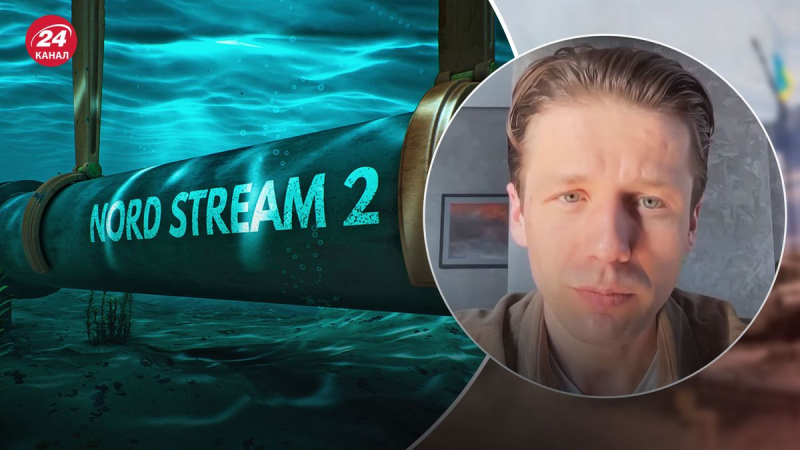
Western media reported that a “pro-Ukrainian group” was behind the explosions at the Russian Nord Stream. However, this version looks rather strange.
This opinion was expressed by political scientist Andrei Vigirinsky to Channel 24 . In particular, The New York Times published an article about explosions on gas pipelines in the Baltic Sea.
According to the publication, new US intelligence indicates the involvement of a “pro-Ukrainian group” in the sabotage, which included opponents of Russian President Vladimir Putin.
At the same time, according to journalists, the Ukrainian authorities could not have been involved in the incident on the gas pipelines. Like, saboteurs could be private individuals, among whom could be both Russians and Ukrainians.
The reaction of the Russians
As Vigirinsky noted, the Russians did not like this version.
“The aggressor country continues to insist that the explosions at the Nord Stream are “American and Anglo-Saxon intelligence services,” the political scientist said.
Moreover, according to him, Russian propagandists ridiculed the version of The New York Times.
Andrey Vigirinsky commented on new information about the Nord Stream bombing: watch the video
The constructive position of the West
As Vigirinsky noted, the best position in this situation is exactly the one demonstrated by US and German officials.
Representatives of these countries stated that they would rely only on the official reports of the pre-trial investigation. Everything else, even if it is a leak of information from the case file, does not matter yet,” the political scientist said.
He noted that these published data are unlikely to affect relations between Kyiv and Berlin. After all, German Chancellor Olaf Scholz himself is proud of how quickly and efficiently his country was able to get rid of dependence on Russian energy sources.
Shift in the emphasis of responsibility
Vigirinsky believes that civilians could not carry out such a complex operation on gas pipelines.
Most likely, we are really talking about certain special services that have the appropriate technical means and specialists to carry out such a task. These may not necessarily be Russian special services, but, for example, representatives of states friendly to Ukraine, the political scientist noted.
However, in The New York Times article, the emphasis is shifted in such a way that the bombings at Nord Stream are not an initiative of countries at the state level . Accordingly, no special service or government can be blamed for this.
“That is, the main message is that this (undermining of gas pipelines – Channel 24) was not part of the state policy of any of the countries,” Vigirinsky said.
Why is the version of the publication unconvincing
The political scientist added that the version of the American newspaper is rather strange.
“So, this is not about an interstate conflict, but about a certain group of people who, at the call of the soul, using their own financial resources, implemented such an “incident” on gas pipelines. And they are supposedly looking for them,” Vigirinsky said.
He noted that such an option is completely unconvincing.
It sounds pointless that it is possible to blow up 2 strands of a gas pipeline – a strategic infrastructure facility – using a yacht and improvised means, – the political scientist said.
He ironically added that, of course, every second scuba diver with a certificate from Egypt is capable of such actions.
The Nord Stream incident: what is known
- Nord Stream 1 and Nord Stream 2, each consisting of two strings, were built by Russia-controlled Gazprom to pump 110 billion cubic meters of natural gas a year to Germany under the Baltic Sea.
- Explosions on pipelines occurred in September 2022. NATO called pipeline explosions sabotage.
- Mikhail Podolyak, an adviser to the head of the President's Office, then noted that the gas leak was a Russian act of aggression against the EU. The Kremlin's plans were to cause panic before winter.
- Now Russia plans to mothball the damaged threads of its Nord Stream 1 and Nord Stream 2 underwater gas pipelines.
- Despite Gazprom's claims that repairs are possible, Reuters sources told Reuters that Russia considers the project “buried” due to the impossibility of improving relations with Europe in the near future.

